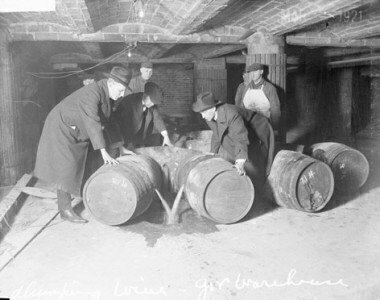Today marks the anniversary of the landmark Olmstead v. United States wiretapping case decided by the Supreme Court, one of the first key cases in which the Court attempted to interpret the scope of the Fourth Amendment.
The decision centered on the ability of federal investigators to wiretap private conversations without a warrant, and the ability to use evidence from the wiretaps in court.
Roy Olmstead was a lieutenant on the Seattle police force who, like other officers, had a side job. In his case, Olmstead’s part-time job was as the most successful bootlegger in the Pacific Northwest during Prohibition.
And it wasn’t a small-scale operation. Olmstead brought in millions of dollars each year using a combination of modern business methods and his connections within the police force.
Olmstead’s empire was ferreted out by a federal investigation that became a landmark in the annals of American law. A team spent months listening and noting his business calls, using a wiretapping system outside of his offices.
After his conviction, Olmstead’s appeal made it to the Supreme Court on the grounds that the wiretapping act was a violation of his Fourth Amendment rights to be free from unreasonable search and seizure.
In a 5-4 verdict, the Supreme Court decided on June 4, 1928, that the warrantless wiretapping was permissible. Speaking for the majority, Chief Justice William Howard Taft said private telephone communications were no different from casual conversations overheard in a public place.
That decision was overturned in 1967 in Katz v. United States, which held that wiretapping a public pay phone was subject to warrant requirements and created the “reasonable expectation of privacy” test to determine what areas were constitutionally protected.
The more influential part of the opinion was Justice Louis D. Brandeis’s dissent in Olmstead. Brandeis said there was no difference between wiretapping a pay phone and opening a sealed letter, and that the Founders had “conferred against the government, the right to be let alone – the most comprehensive of rights and the right most favored by civilized men.” Moreover, since the government acted unethically (it had violated the laws of the state of Washington which made wiretapping illegal) they should not be given assistance by the Court.
After losing his appeal, Olmstead did a few years in prison, was later pardoned, and spent part of his remaining years as a Christian Science practitioner, working on programs about alcohol abstinence.






